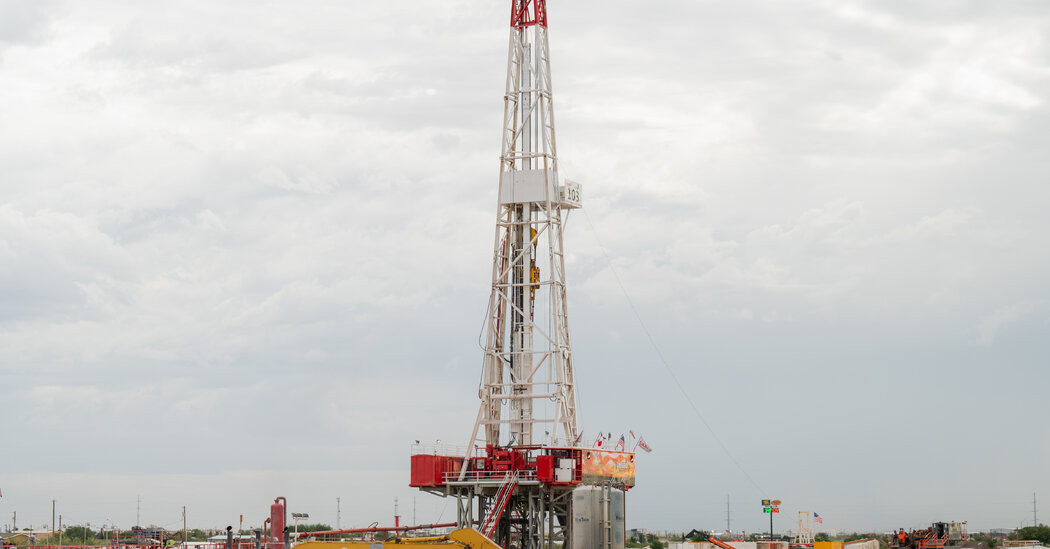

Many oil and gas executives thought they had hit pay dirt with President Trump’s election. A Trump administration would be staffed by people sympathetic to the industry. More areas would be opened to drilling and costly regulations swept away.
In recent days, though, the industry has had ample reason to question that narrative.
The tariffs Mr. Trump announced on Wednesday were far steeper than many anticipated, stoking fears that an escalating trade war could curb global economic growth — or even tip the United States into a recession, dampening fuel demand.
Then, on Thursday, a producers’ cartel led by Saudi Arabia piled on, saying it was going to pump more oil than previously planned, beginning in May.
The combination shaved roughly 13 percent off Brent crude, the international benchmark, which settled at $65.58 a barrel on Friday afternoon, its lowest level in more than three years as stock markets reeled around the world.
The price slide is good for consumers, who benefit when gasoline and other fuels cost less. But it is spooking energy companies, particularly those in the United States, which has become the world’s largest oil producer.
If prices remain low or fall further, the industry, a major exporter and a big employer in states like Texas, could be forced to scale back investment and cut jobs.